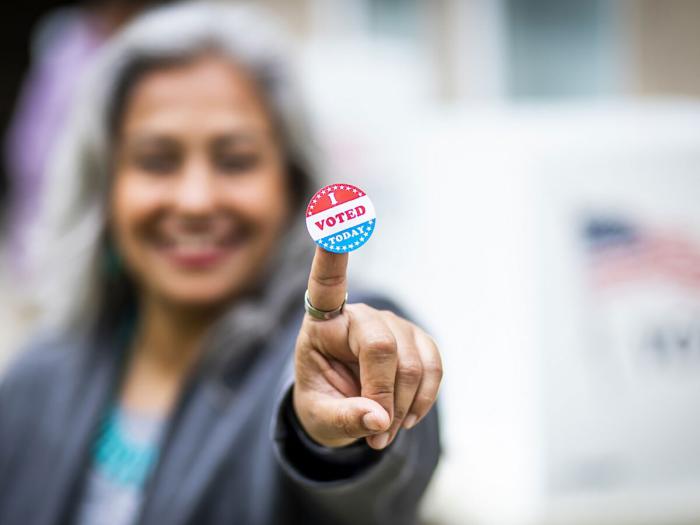Why We Need to Invest in Local Politics Year-Round

Down-Ballot Races Help Determine our Climate Future
Now that the 2020 election is over, it might be tempting to think that we can take a break from our political work. In fact, as we ring in the New Year, we’ll be entering a critical time for building power at the state and local level.
In the coming months, our chapters and national political team will be launching an effort to win hundreds of county commission, city council, and state house races around the country in 2021 and 2022. We’ll be drawing on the lessons we learned from our 2020 efforts -- both our ambitious presidential mobilization and our robust investment in down-ballot races.
Though voters tend to overlook local elections, these seats often have the greatest potential to directly affect communities. County commissioners can decide whether or not fracking projects move forward. City councils can commit communities to 100 percent clean energy. State houses can create tax incentives for wind and solar power. Public Service Commissions can set energy rates. And, as this year reminded us, local leaders can also control voting access and outcomes that protect--or erode--our democracy.
The Sierra Club shattered a lot of records this past year--not only did we turn out more than 33,000 volunteers to help elect Joe Biden and Kamala Harris; we made a historic investment in our state and local political program. We expanded our political capacity in eight critical states and played a key role in 90 different down-ballot races around the country.
We saw first-hand what a difference it makes when we put money behind our local chapters and volunteers. For example, in Larimer County, Colorado, we spent on direct mail and phone calls, which allowed us to target a key group of voters: those who care about environmental issues but are unlikely to turn out or complete their whole ballot. It also allowed us to rally voters around issues like protecting open space and clean water.
The result was that we flipped the Larimer County Commission to a pro-environment majority, and our endorsed candidates--Kristin Stephens and Jody Shadduck-McNally--will be much more likely to stand with us when it comes to destructive fossil fuel projects, clean water initiatives, and protecting public lands. We did the same thing in the county commissioner race in Colorado’s Arapahoe County -- one the state’s fastest-growing targets for mineral extraction and fracking.
Though we didn’t win all of these races, we laid the groundwork for future fights, and learned some valuable lessons that will help shape our approach in the coming months and years. These include:
We Can’t Rely on Short-Term Political Organizing
Overall, 2020 was a tough year for down-ballot races. One of the key lessons for the progressive movement as a whole is that it’s not enough to drop into communities during the election season. Progressives need to make long-term commitments. We know from past experience that in places where the Sierra Club is embedded and consistently shows up with funding and volunteers, we’re more likely to win elections--and good climate policies.
It’s Time to Embrace the Environment as a Winning Message
For years Democrats have shied away from talking about environmental issues in rural communities because they assume it’s a losing issue. This election cycle has fundamentally challenged that assumption. In 2020, our local political work allowed us to advance powerful new narratives, bringing new climate voters into our movement. In places like Garfield County, Colorado (the second most fracked county in the state), we reframed our issues to reflect the importance of water and agriculture--and those messages stuck. In New Mexico, we challenged the idea that the state’s economic future relies on oil and gas; our down-ballot victories there proved to lawmakers that voters really are ready to embrace a clean energy economy.
Investing in Local Sierra Club Chapters Delivers Exponential Returns
Sierra Club chapters are the backbone of our grassroots work; many of our chapter staff and volunteers have been embedded in their communities for decades. Their deep networks and local knowledge can propel a campaign effort in a way the traditional model of campaign organizing never will. When we invest money and resources in local politics, it increases the power of our chapters to influence decisions, and makes it more likely that we’ll win protections for clean air and water.
The independent expenditure project we piloted in down-ballot races in 2020 provided a glimpse of what might be possible in the future. If we can make sustained, year-round investments in more communities through our chapters and our political program, we will be in a much better place to elect environmental champions up and down the ballot, stop fossil fuel development and protect our air, water, and lands.
This country belongs to all of us, and when we fight, we win.